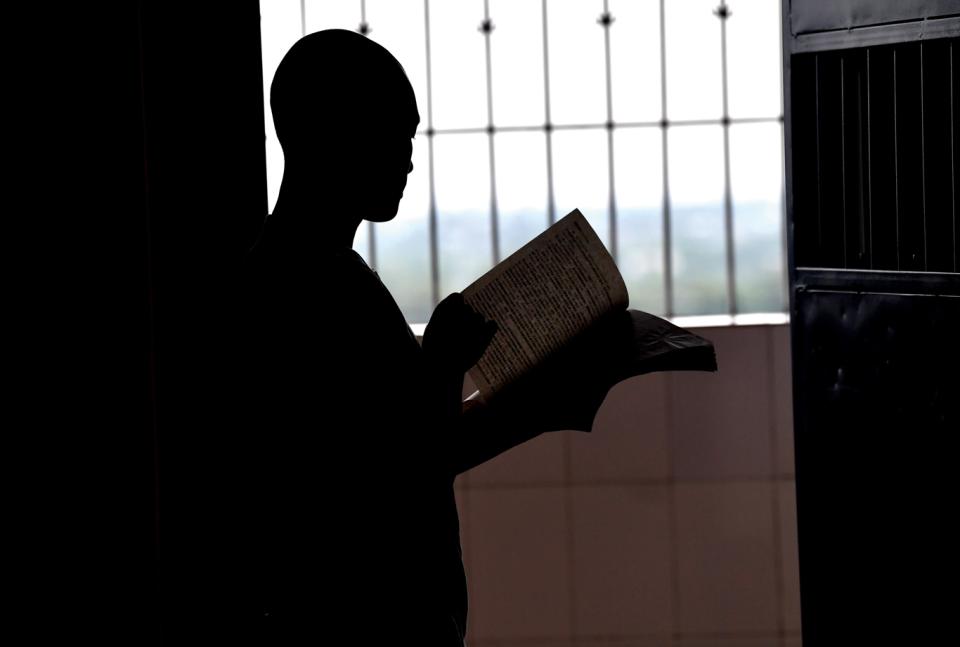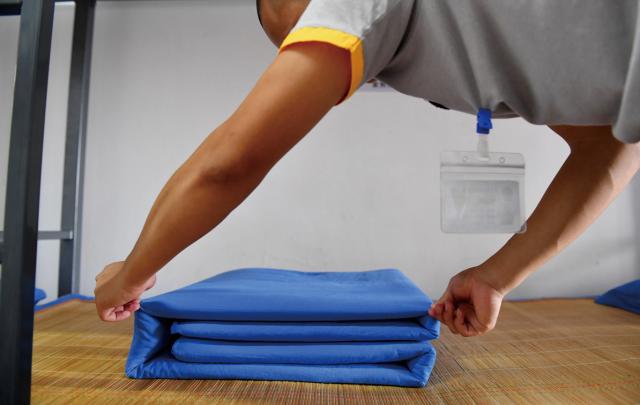When the police in the coastal city of Dalian, Northeast China’s Liaoning Province, announced that a 13-year-old boy who confessed to brutally murdering a 10-year-old girl from the same neighborhood would not face criminal charges, it triggered widespread public outcry over the country’s juvenile crime laws.
According to the police investigation, the teen surnamed Cai lured the girl into his home. He sexually assaulted her before stabbing her to death and dumping her body in a nearby ditch. But because China’s laws exempt minors under 14 from criminal responsibility, the police could not charge him. The boy was sentenced to the harshest punishment applicable – three years at a government-run correctional facility for young offenders.
This enraged the victim’s family, who hired a lawyer to seek “the most severe sentencing for the murderer.” But legal experts are doubtful as further punishment is rare.
The case was the latest in a string of murders committed by children under 14. In the three-month period between December 2018 and March, there were three separate cases of minors between 12 and 13 brutally killing their parents. In one case, the boy cut off his mother’s head on video and posted it on social media.
Despite the severity of the offenses, none faced criminal charges. One of them was released just days after being taken into custody. The cases led to heated debates over the age of criminal responsibility among the public and legal experts alike. In March, 30 Chinese lawmakers submitted a proposal to the National People’s Congress (NPC), China’s top legislative body, to lower the minimum age of criminal responsibility from 14 to 12.
China’s age limit for juveniles is higher than most countries. In 2007, the United Nations Committee on the Rights of the Child recommended an “absolute minimum” age of 12 for criminal responsibility, while encouraging states to increase it to 14. According to data compiled by Child Rights International Network (CRIN), about 65 countries, or one-third of the world’s countries, have a minimum age of 14 and higher (no more than 16). In most, the threshold falls between 7 and 13. Seven countries do not have a set minimum, including the US – 33 states have no minimum age statute, while the remaining 18 states range between 7 and 10 years old, according to the CRIN data.
Supporters of the proposal argue that minors are maturing both physically and psychologically much earlier than previous generations because of better living standards and increased access to information. The argument that minors under 14 are not mature enough to understand the nature and consequences of their actions simply does not hold for some offenders.
The boy involved in the Dalian murder, for example, is 170 centimeters tall and weighs 70 kilograms – a large build for his age. He was said to have stalked other girls in the neighborhood in the past, and in the aftermath of the murder, a video clip showing him masturbating in front of a female passenger on a public bus was posted online. Many legal experts said he is mature enough to face trial.
“We are sending a terribly wrong message that they [minors under 14] can do anything with impunity,” said Zheng Gongcheng, a professor at the Renmin University of China and an NPC member. “This has to change,” he added.
According to Kang Liying, a professor from Capital Normal University and expert in juvenile crime, the fact that a minimum age for criminal responsibility exists may be the very reason why some juveniles commit crimes.
“Many juvenile offenders are clearly aware of the protection they have from the law, and the mentality is that if you want to do something big, you better do it before 14,” Kang said during a news interview on State broadcaster China Central Television. “Beyond 14, you can still do something before 16, but be careful after turning 16,” Kang added.
But not everyone agrees. Li Meijin, a professor from the People’s Public Security University of China, argued that juvenile delinquency is the result of social and economic problems, and cannot be simply addressed by handing out harsher punishments.
It has long been argued that a major factor behind the rise in juvenile delinquency in China is the phenomenon of “left-behind” children, or minors who are left in their rural homes while their parents work in urban areas. According to a Xinhua News Agency report in March 2016, left-behind children accounted for about 20 percent of all children in China, but committed 70 percent of juvenile crimes. Some of the minors who murdered their parents were also left-behind children, media reported. Li believes that China should focus on holding parents accountable for taking care of their kids. “Unless there are special circumstances, parents should not be allowed to shun their legal responsibility as their children’s guardians,” Li said.
Only days after the murder in Dalian, China’s lawmakers convened at a bi-monthly session of the NPC’s Standing Committee to deliberate a draft amendment to the Prevention of Juvenile Delinquency Law and the Juvenile Protection Law, an event that attracted much public attention.
For many, the juxtaposition of the two laws reflects the dilemma Chinese lawmakers face – protecting and punishing juvenile delinquents. In past years, China’s law enforcement agencies took a more lenient approach toward juvenile offenders, a trend hailed as major progress for China’s legal system.
For example, according to a report from the Supreme People’s Court-affiliated China Justice Big Data Institute, in 2018 alone, the number of cases in which prosecutors decided not to arrest or prosecute young offenders increased by 6.9 and 13.8 percent over the previous year.
But on the heels of the recent murder case, the public has seriously challenged this lenient approach. “You have two children, one is brutally murdered and the other who committed the crime walks free. How can you say that you are protecting children?” a netizen wrote.
Many of the victims in recent high-profile juvenile cases were also minors. In March 2018, a 13-year-old boy in Central China’s Hubei Province attacked a girl with scissors, robbed her and forced her to strip. He was released without punishment. In a 2015 case, a group of students in South China’s Guangxi Zhuang Autonomous Region severely beat an 11-year-old girl. Their only punishment was apologizing to the victim.
During the NPC session, many lawmakers called for a separate juvenile criminal justice system. “China needs to establish an independent juvenile justice system with its own principles, legal entities and procedures to both protect and discipline juvenile delinquents,” Pi Yijun, a professor and expert on juvenile delinquency at China University of Political Science and Law, told NewsChina.
Pi pointed out that China’s current juvenile correctional facilities lack clear legal status. Take work-study school for juveniles, for example. Not only do these schools lack clear guidelines for reeducation, they also accept non-offenders such as the mentally-ill and disabled students.
Xian Tieke, a veteran law practitioner and an NPC member, agreed, adding the law should also cover how to handle juvenile offenders who are not old enough to stand trial.
“The problem is that without adequate institutional arrangements for juvenile delinquents, law enforcement agencies can only choose between setting them free or punishing them as grown-ups,” Xian said.
The draft amendment to the Juvenile Delinquency Prevention Law released after the NPC session would do away with a clause that stipulates “minors under 16 who committed crimes but face no criminal charges shall be returned to their parents or taken into State custody for foster care and education.”
Some suggest this exclusion means juvenile delinquents would not be returned to their parents directly, while others said it signals the scrapping of juvenile correctional facilities.
The amendment also divides juvenile delinquency into three categories – delinquent behavior, serious delinquent behavior and criminal behavior. It says different treatment measures would apply to each without going into detail. The draft amendment also adds clauses emphasizing parental responsibility in preventing juvenile delinquency, but falls short of specifying how parents would be held accountable.
While some legal experts said the draft amendment is just a cosmetic makeover of already toothless laws, others believe that the new wordings may pave the way for a more effective juvenile criminal justice system as some NPC members have sought. But even so, it will be a long time before any meaningful reform takes shape.
As for the core issue of whether the age of criminal responsibility should be lowered, debate among NPC members is ongoing, especially because the issue is not covered in either of the two laws.
According to Xu Xin, a law professor from the Beijing Institute of Technology, most experts are in favor of lowering the age of criminal responsibility.
But as that would involve changing China’s Criminal Law, the issue must wait until Criminal Law amendments are officially added to the NPC agenda.

 Old Version
Old Version

